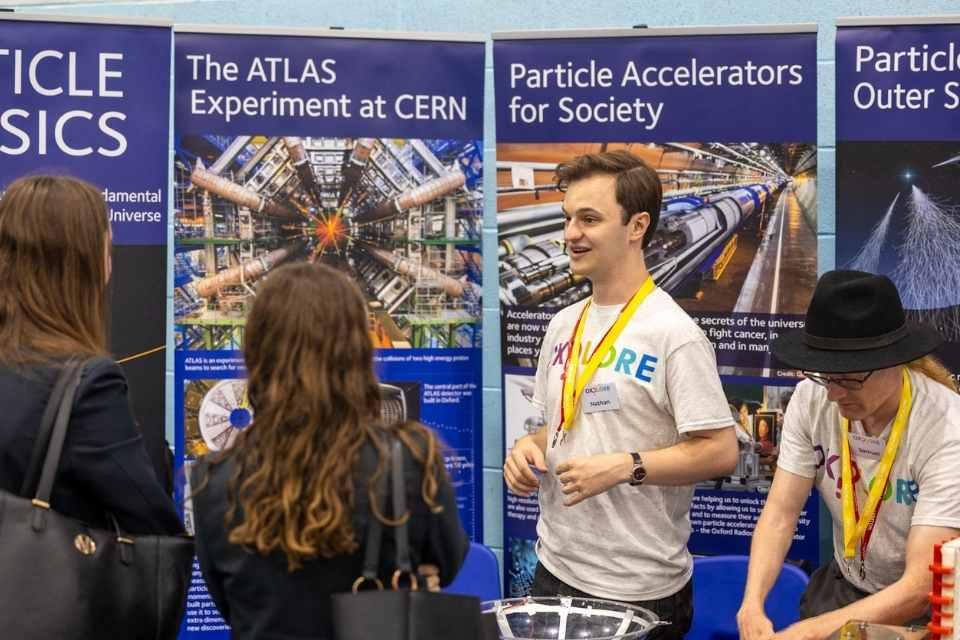‘The Department of Physics is always keen to attract applications to study physics from all backgrounds, especially those under-represented in the University, and we run many events with this aim,’ explains particle physicist, Dr Sam Henry. ‘However, if we wish to reach those who have never considered coming to Oxford, we can’t expect them to turn up at our open days. We need to get away from Oxford and visit them in their home towns, and talk to them at an age before anyone has told them that Oxford is not for them.’
So that is what they did. Dr Henry and DPhil students Ruben Hönscheid and Nathan Baudis joined the Oxplore festival in Bradford and Warrington in July. The event is run by the University of Oxford, with the involvement of many researchers from both science and humanities subjects. More than 1,200 students from state schools across these cities came along for a fun day filled with activities.
The Department of Physics is committed to encouraging applications from students of all backgrounds, particularly those historically under-represented at the University, and runs a range of events with this aim. ‘While open days are valuable,’ continues Dr Henry, ‘they are unlikely to reach individuals who have never considered Oxford as an option. To engage these students, we must go beyond the campus – visiting different schools and communities, and starting conversations early, before misconceptions about who belongs at Oxford take hold.’
At the particle physics stall in Bradford, the team showed how to accelerate particles to super high energies (with the aid of a Van de Graaff generator, a ping pong ball, and a plastic bowl) then detect the tracks they leave in a cloud chamber or silicon detector. ‘We wanted to give the students a taster of what studying physics at university is like – the fun of doing experiments and the thrill of seeking to answer Big Questions about the Universe,’ explains Dr Henry.
The following week, in Warrington, Nathan Baudis used an interactive demo originally built for the Royal Society Summer Science Exhibition to show how neutrinos change flavour as they pass hundreds of kilometres through the Earth. Oxford is playing a major role in this accelerator neutrino research.
Both festivals were a great success; Outreach Coordinator at the University of Oxford, Edith Johnson, comments: ‘The particle physics stand was next-level amazing – always buzzing with really intrigued kids! Hopefully we can work together again next year.’

